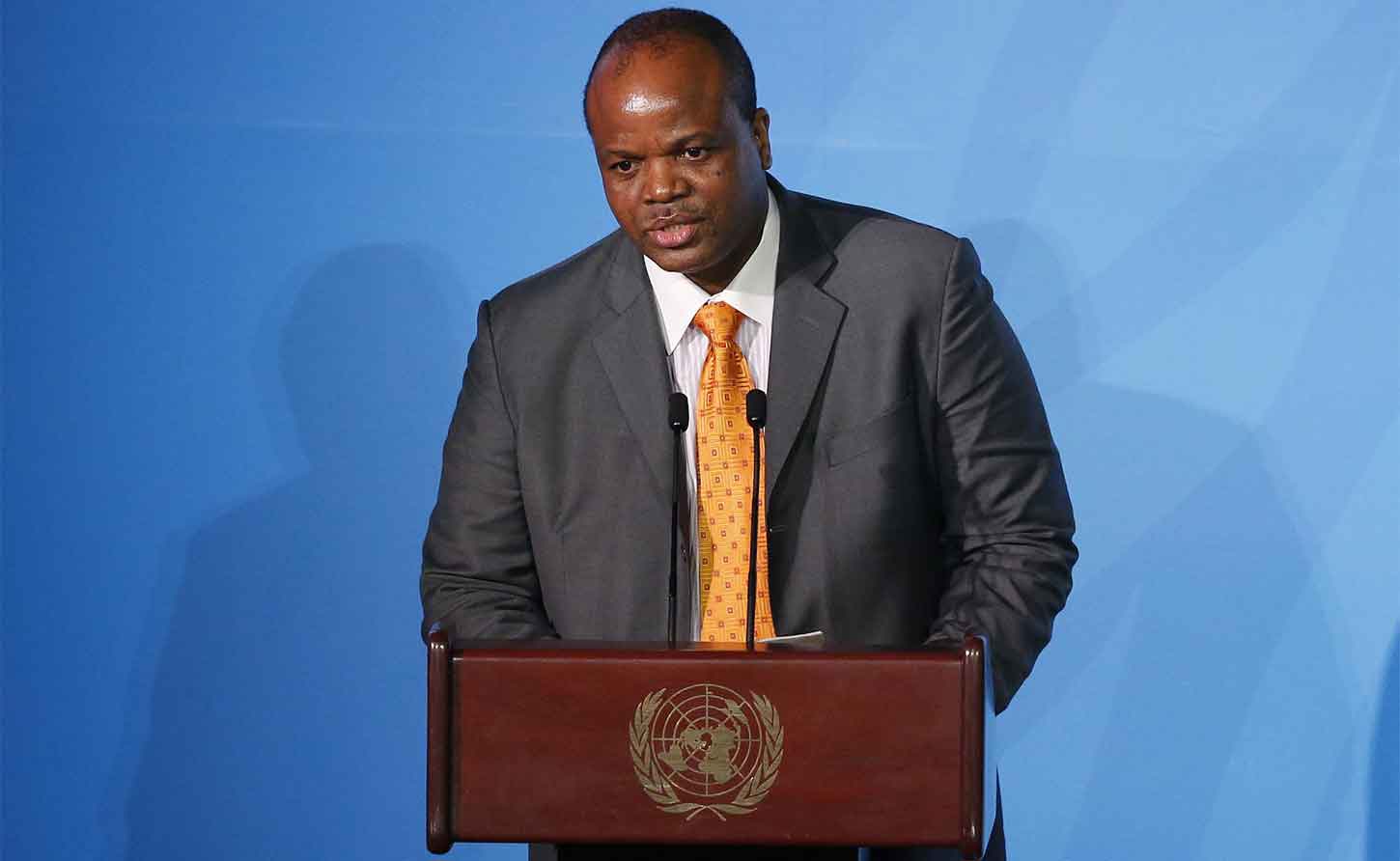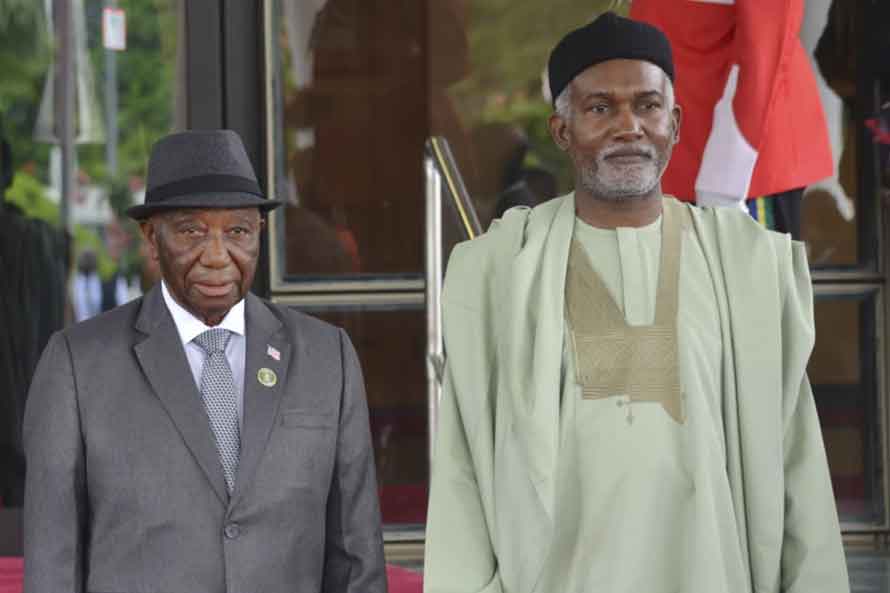CARIBBEAN | Trump Regime Targets Vulnerable African Nations to Deport Third-country Nationals.

MONTEGO BAY, July 16, 2025 - In the dead of night, five men stepped off a plane in Eswatini. Among them was a Jamaican national, shipped thousands of miles from his adopted American home to a continent where he had no ties, no language, no future. The Trump administration called them "barbaric" criminals so dangerous that "their home countries refused to take them back."
Eswatini is a tiny landlocked African kingdom formerly known as Swaziland. Sandwiched between South Africa and Mozambique, this nation of just 1.1 million people covers only 17,364 square kilometers—smaller than Jamaica.

But like a midnight kidnapping, the operation was shrouded in secrecy. Eswatini authorities provided no comment on any deal to accept third-country deportees or what would happen to them.
"There has been a notable lack of official communication from the Eswatini government regarding any agreement or understanding with the U.S. to accept these deportees," said Ingiphile Dlamini, spokesperson for the pro-democracy group SWALIMO. "This opacity makes it difficult for civic society to understand the implications."
The silence speaks volumes. In one of the world's last remaining absolute monarchies, where King Mswati III has ruled by decree since 1986, transparency is a luxury the regime cannot afford.
Political parties are effectively banned, and pro-democracy groups have documented years of crushed political dissent, sometimes violently. When pro-democracy protests erupted in 2021, dozens were killed, allegedly by security forces.
This wasn't deportation as traditionally understood—it was something far more sinister. It was the weaponization of human displacement, and the Caribbean finds itself squarely in the crosshairs of a policy that treats small nations as convenient dumping grounds for America's unwanted.
The Carrot and the Stick
The timing wasn't coincidental. Just hours after announcing these third-country deportations, Trump slapped a blanket 10% tariff on Caribbean exports to the United States, including Jamaica, Trinidad and Tobago, and Barbados. The message was unmistakable: comply with our deportation demands, or face economic strangulation.
Jamaica tops the list of English-speaking Caribbean countries with 5,120 individuals marked for deportation, while Cuba leads regionally with 42,084, followed by Haiti with 32,363. But the numbers tell only part of the story. The real leverage lies in the economic chokehold America maintains over these nations.
Remittances from the United States account for 67.8% of Jamaica's total inflows, representing nearly 19% of the country's GDP. Tourism, Jamaica's largest foreign exchange earner, sees 70% of its visitors coming from the United States. When Trump threatens tariffs and visa restrictions, he's not just flexing diplomatic muscle—he's threatening economic annihilation.
The African Experiment
South Sudan, the world's youngest nation and one of its poorest, has already accepted eight third-country deportees from the United States—only one of whom was actually South Sudanese. The deal's terms remain secret, but experts suggest it's part of a broader pattern of economic coercion.
The Eswatini case reveals the same troubling pattern. Nobody knows if the five men are being held in detention centers, what their legal status is, or what Eswatini's plans are for them.
As a poor country with limited resources, Eswatini "may face significant strain in accommodating and managing individuals with complex backgrounds, particularly those with serious criminal convictions," warned SWALIMO's Dlamini, who raised concerns about "any potential risks to the local population."
Beverly Ochieng, an analyst at Control Risks, notes that countries may seek to facilitate US deportation programs to avoid losing "access to the US economy or economic initiatives and bilateral relations," especially "in light of the withdrawal of developmental aid."
Nigeria's Foreign Minister Yussuf Tuggar has publicly rejected what he describes as "pressure to accept third-country deportees, saying the country had enough problems of its own." But Nigeria has oil revenues and regional clout. Small Caribbean nations and impoverished African kingdoms lack such luxury.

St. Vincent and the Grenadines' Prime Minister Dr. Ralph Gonsalves has expressed concerns over the limited information being provided about the criminal histories of Vincentian nationals on the deportation list, calling it "critical for reintegration." But his complaints carry little weight in Washington's new transactional calculus.
Trinidad and Tobago's Prime Minister Stuart Young says he is "prepared to sit across the table and negotiate regardless of who is on the other side," but the power dynamics are brutally clear. When America holds the economic cards, "negotiation" becomes a euphemism for capitulation.
The human cost is already visible. The stigma surrounding deportees in Caribbean societies is profound, with Jamaica's late criminology professor Bernard Headly noting that "deportees are viewed among the nation's opportunity gatekeepers as generic criminal threats, no matter the reason for their deportation."
The Legal Facade
In June 2025, the Supreme Court ruled that the Trump administration could resume expedited deportations to third countries with minimal notice, overturning lower court decisions that had found violations of due process rights. The legal veneer provides cover for what amounts to state-sanctioned human trafficking.
According to a New York Times review of government documents, the administration has asked, or plans to ask, nearly sixty countries to accept deportees who are not their citizens. The scope is breathtaking, the implications terrifying.
The Endgame
This isn't about immigration policy—it's about imperial control. Immigration now dominates US-Africa relations over trade initiatives like AGOA, and the same pattern is emerging in the Caribbean. Economic partnership is being replaced by coercive dependency.
Edmund Yakani, a prominent South Sudanese civil society leader, captured the moral crisis succinctly: "South Sudan is not a dumping ground for criminals." Neither is Jamaica, Trinidad, or any other Caribbean nation.
But in Trump's America, sovereignty is conditional, dignity negotiable, and human rights subordinate to political convenience. The Caribbean's choice is becoming stark: accept whatever America discards, or face economic exile.
The five men who landed in Eswatini were just the beginning. They represent a new era where small nations become receptacles for larger powers' problems, where human beings become chess pieces in geopolitical games they never chose to play.
The question isn't whether this policy will expand—it's whether the Caribbean will find the courage to resist before it's too late.
-30-
